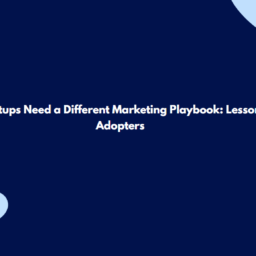In the fast-paced world of marketing, separating fact from fiction can be a daunting task. With countless strategies, trends, and so-called “expert” opinions floating around, it’s easy to fall prey to misconceptions that could harm your business. Let’s debunk five common marketing lies that you need to stop believing right away:
1. “More Traffic Equals More Sales”: While increasing website traffic is important, it’s not the end-all-be-all metric for success. Quality over quantity reigns supreme in the digital marketing realm. It’s better to have a smaller, engaged audience that converts than a large influx of visitors who quickly bounce from your site. Focus on attracting the right audience through targeted campaigns and providing value to your visitors.
2. “Social Media Marketing is Free”: While it’s true that signing up for social media platforms doesn’t cost anything, effective social media marketing requires investment. Whether it’s through sponsored posts, influencer partnerships, or hiring a social media manager, achieving significant results on platforms like Facebook, Instagram, and Twitter often requires financial resources. Treat social media marketing as a vital part of your budget rather than a free promotional tool.
3. “Email Marketing is Dead”: Contrary to popular belief, email marketing is far from obsolete. In fact, it remains one of the most effective channels for reaching and engaging with your audience. With the right strategy, personalized content, and automation tools, email campaigns can drive substantial ROI for your business. Don’t underestimate the power of a well-crafted email to nurture leads, drive conversions, and foster customer loyalty.
4. “SEO is a One-Time Effort”: Search engine optimization (SEO) is not a one-and-done task. The digital landscape is constantly evolving, and search algorithms are continually being updated. To maintain and improve your search rankings, ongoing optimization is essential. Regularly audit your website, monitor keyword performance, and adapt your strategy to stay ahead of the competition. SEO is a long-term investment that requires consistent effort and adaptation.
5. “Marketing Automation Means Impersonal Messaging”: While automation tools can streamline processes and save time, they shouldn’t come at the expense of personalized communication. Today’s consumers crave authenticity and relevance. Use automation to segment your audience, deliver targeted messages, and provide value at every stage of the customer journey. Balancing automation with personalization is key to building meaningful relationships with your audience.
In conclusion, navigating the world of marketing requires a critical eye and a willingness to challenge conventional wisdom. By debunking these five common marketing lies, you’ll be better equipped to develop strategies that drive real results for your business. Remember, success in marketing isn’t about blindly following trends—it’s about understanding your audience, delivering value, and constantly adapting to meet their needs.




